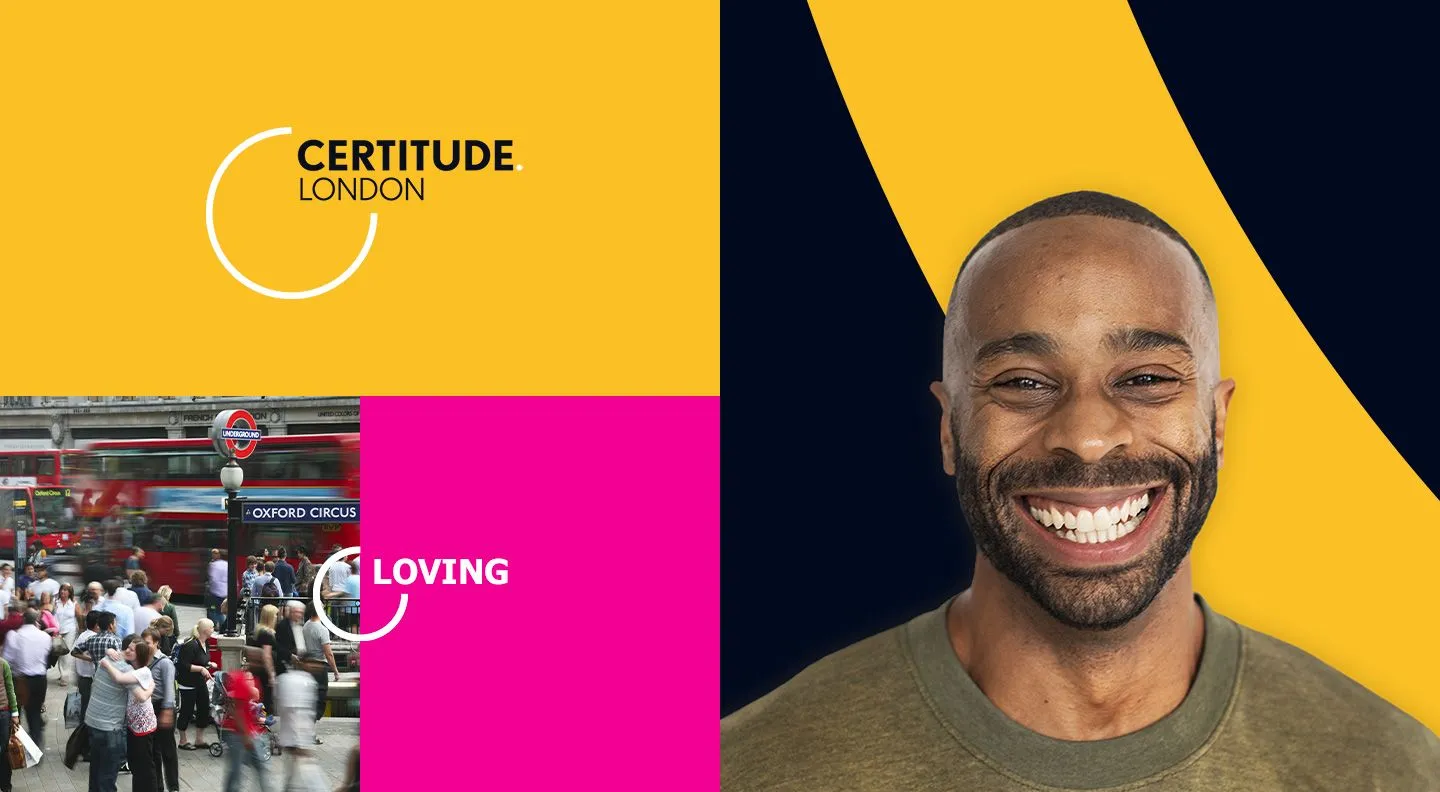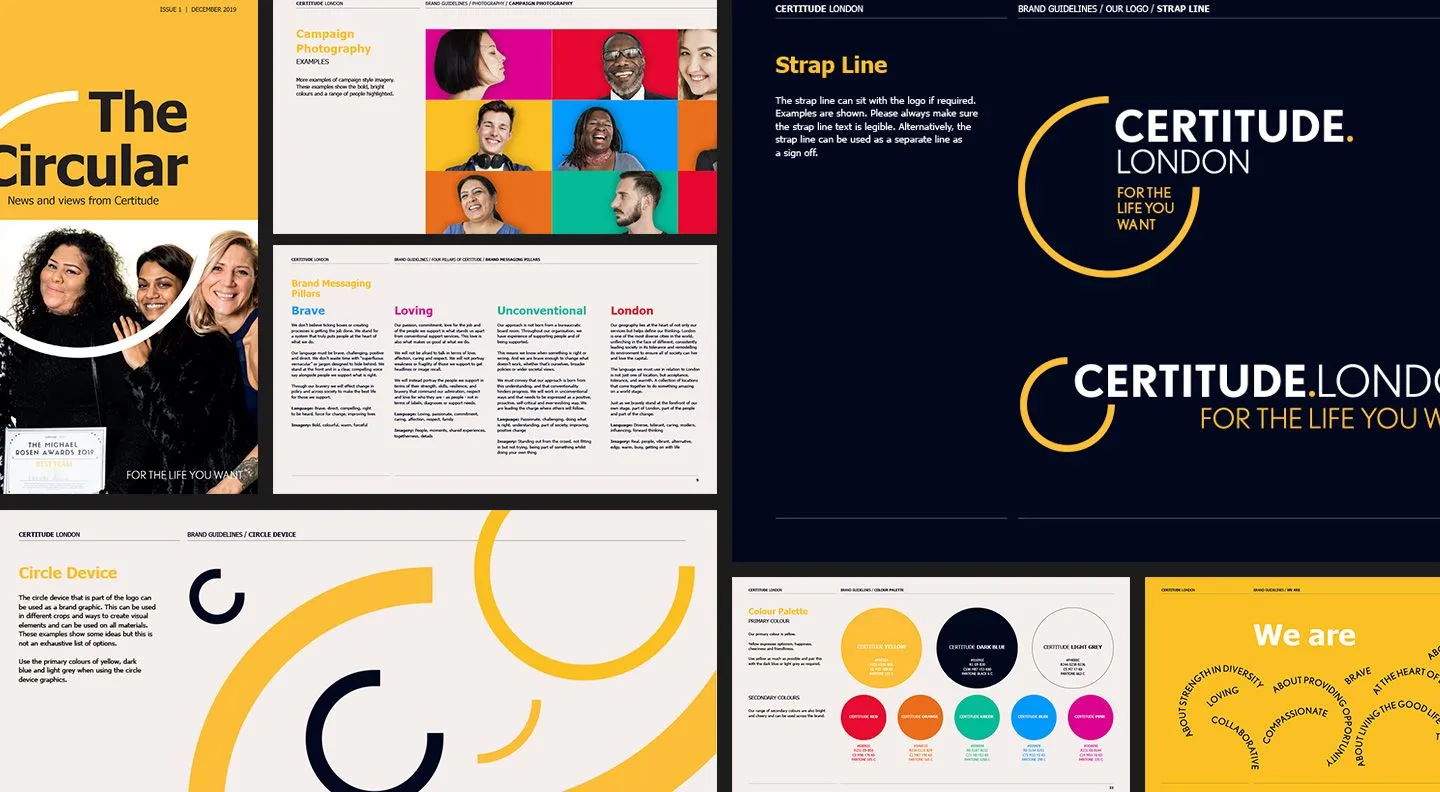FOR THE LIFE YOU WANT

Certitude are a London-based charity supporting people with mental health issues, autism, and other learning disabilities. They’re an established Third Sector presence in London, but were struggling with one particular ambition – to go beyond simple recognition and show why they were relevant to all Londoners.
Building a brand fit for a powerful cause
Services provided:
Establishing relevance with multiple complex audiences
Compared to other mental health charities like Mind and Scope, Certitude were having difficulty in cutting through the noise and establishing a compelling reason for supporting their fundraising.
A client workshop with leadership, trustees and employees quickly identified how stakeholders were feeling about the charity and its services.

Overcoming compassion fatigue
Like most charities today – particularly London-based ones – Certitude faced growing compassion fatigue. The workshop confirmed this.
What Certitude needed was to clearly communicate what they did, how they were different, and just how powerful supporting them was.
This meant a powerful shift to showing exactly why their work mattered. A variety of messages that could engage an audience at all stages of their lifecycle.
The creative approach
The chance to recreate a brand logo from scratch is a rare opportunity. Our creative team responded with a logo that suggests both a philosophical and geographical identity. The circle suggests focus, with the break suggesting movement from one state to another – specifically how Certitude changes lives.
The position of the word Certitude acts as a bridge that takes someone from an enclosed world, where there are barriers, to a more open one. Certitude is breaking the circle.

For the life you want
We needed a tagline that encapsulated the bold, straight-talking nature of Certitude and its people, but would be resistant to interpretation on social media and beyond. In the end, we acknowledged that Certitude was above all about simplicity and honesty.
“For the life you want” communicated the aspiration of Certitude as a right to be claimed.
Our work with Certitude was consistent with a growing move in the Third Sector away from ‘doing good’ towards empowering people. A society that is more inclusive no longer considers those in need of support as ‘worthy’ of sporadic outpourings of benevolence. Instead, the focus is on charities vocalising the issues they confront as part of a wider community responsibility. Charities no longer want to be seen as a service provider, but as a catalyst for change.
Could you be our next client?
If you’ve seen something in our case studies that got you excited, made you want to learn more, or you’d just like to meet the team behind the work – let’s talk.

